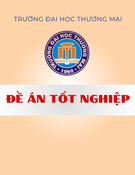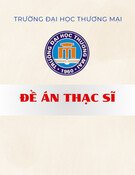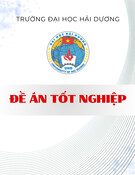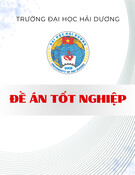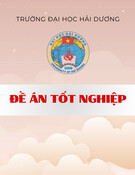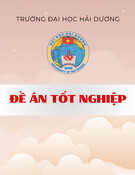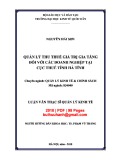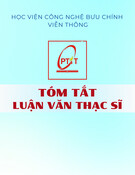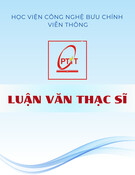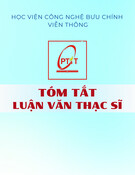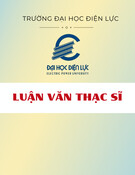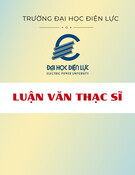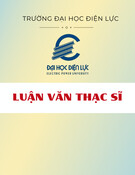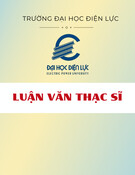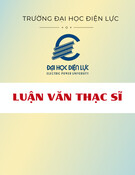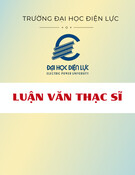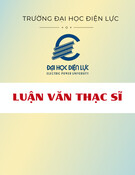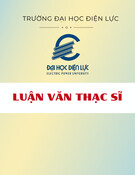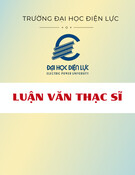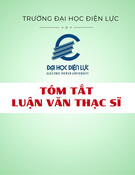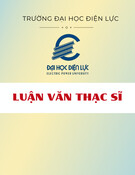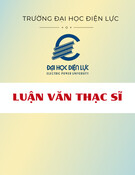
A STUDY OF THE DEVELOPMENT OF
ACCOUNTING IN VIETNAM
A Thesis Submitted
In Fulfillment of the Requirements for the Degree of
Doctor of Philosophy
THANH MINH VO BUI
Master of Business Administration
Bachelor of Business
School of Accounting
College of Business
RMIT University
August 2011

Page 2 of 462
DECLARATION
I certify that except where due acknowledgement has been made, the work is that of the
author alone; the work has not been submitted previously, in whole or in part, to qualify
for any other academic award; the content of the thesis is the result of work which has
been carried out since the official commencement date of the approved research program;
any editorial work, paid or unpaid, carried out by a third party is acknowledged; and,
ethics procedures and guidelines have been followed.
Thanh Minh Vo Bui
August 2011

Page 3 of 462
ACKNOWLEDGEMENTS
The researcher would not have been able to embark on this research program without the
assistance and support by a number of people.
First of all, I would like to thank all the interviewees in this study for their interest,
willingness, valuable time and knowledge in support of this research. Their participation
was greatly appreciated. I would also like to thank the staff of the National Archival
Centre in Vietnam for their invaluable support and assistance.
Secondly, I wish to record my appreciation to my current principal supervisor, Associate
Professor Prem Yapa, for his guidance and support in supervising my research.
I would also like to thank my second supervisor, Professor Barry J. Cooper, for his
support, patience, understanding, supervising and helping me through this program.
Professor Cooper was originally my principal supervisor when I commenced this
research program. During the transition of changing of principal supervisor after he left
RMIT University, Professor Cooper accommodated me in his busy schedule to enable his
continued supervisory support in relation to this thesis. I am very grateful for his support,
advice and guidance.
My thanks go to the RMIT Research and Innovation Portfolio, the RMIT School of
Accounting (College of Business) and RMIT International University Vietnam for their
financial support in the research program from 2005 – 2010.
I would also like to thank the administrative staff of the School of Accounting and the
Business Research Office (Office of the Pro Vice-Chancellor, College of Business) for
their assistance in administrative matters relating to my research.

Page 4 of 462
My appreciation is also directed to Dr Nguyen Xuan Thu, who inspired and encouraged
me to undertake this project, and for his advice and support, especially in the early days
of my research program.
Last, but most importantly, I would like to extend my greatest appreciation to my parents,
my parents-in-law, and my husband – Kym, for supporting and accompanying me
throughout the many years of this challenging academic journey. Their love,
understanding, support and sacrifices helped make this research work possible.

Page 5 of 462
TABLE OF CONTENTS
Abbreviation .................................................................................................................... 18
Chapter 1
Introduction ................................................................................................... 21
1.1 Background and context of the research .................................................................... 21
1.2
Rationale for the research........................................................................................... 22
1.3
Research questions ..................................................................................................... 24
1.4
Scope and significance of the research ...................................................................... 25
1.5
Limitations ................................................................................................................. 26
1.6
The organisation of the thesis .................................................................................... 27
Chapter 2 Literature review .......................................................................................... 29
2.1 - The definition of a profession and professionalisation and approaches to the study of
the professions .................................................................................................................. 29
2.1.1 The professions .................................................................................................... 29
2.1.2 Professionalisation .............................................................................................. 33
2.2 - A review of the literature on the professionalization of accounting ......................... 38
2.2.1 The State, the Market and the Community ........................................................... 40
2.2.2 State regulation, self-regulation and state-professional relationship ................. 42
2.2.3 Globalisation and domestic economy .................................................................. 47
2.2.4 Socio-historical typology of professions, professionalization as a resistance .... 48
2.3 - Other professions ...................................................................................................... 48
2.4 - Vietnam in brief and prior studies on accounting..................................................... 50
2.5 - Summary and defining the research gaps ................................................................. 56
Chapter 3 Theoretical and Methodological Framework ............................................. 58
3.1 Introduction ................................................................................................................. 58
3.2 Theory and theorisation……………………………………………………………...60
3.2.1 Laughlin and “middle-range” theory .................................................................. 60
3.2.2 Llewellyn and five levels of theorising ................................................................. 63
3.2.3 Post-colonial studies ............................................................................................ 65
3.3 Methodological approaches ........................................................................................ 66
3.4 Theoretical framework of prior research .................................................................... 69
3.5 Theoretical and methodological framework ............................................................... 72
3.6 Research questions ...................................................................................................... 74
3.7 Methods....................................................................................................................... 75

